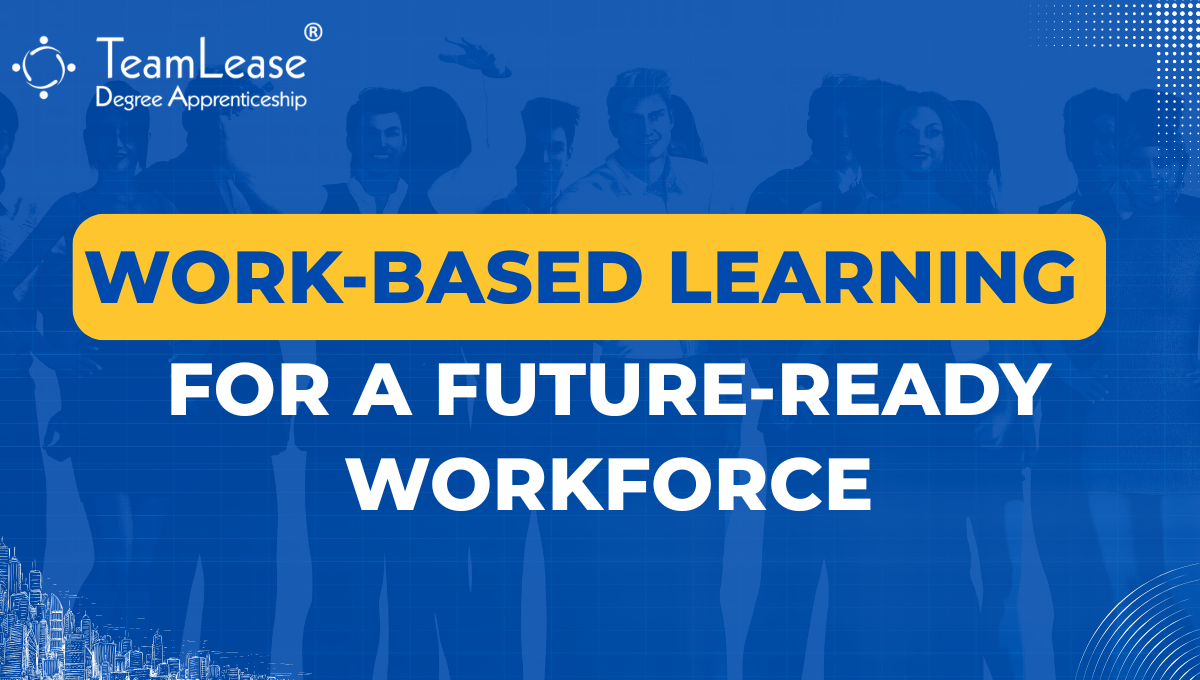India has solidified its position as a major hub for Global Capability Centres (GCC). The industry is set to witness significant growth, with a projected investment of $450 million in 2024. Currently, 50% of the world’s GCCs are in India, with 20% of Forbes 2000 global companies establishing GCCs there. This number is projected to rise to 55% by 2030, with the industry expected to be valued at approximately $100 billion by then.
Despite a 36% surge in expanding their capabilities, employers must effectively tackle various workforce challenges in the GCC industry to ensure sustained success in the competitive business landscape.
Unavailability of an Effective Talent Supply Chain
However, this expansion highlights a critical need: the establishment of a stable and efficient talent pipeline. As the industry evolves, the demand for highly skilled professionals is intensifying. Unfortunately, the current talent supply chain is often fragmented and inefficient, leading to a mismatch between the industry's needs and the available talent pool.
To address this workforce challenge in the GCC industry, employers must focus on developing robust partnerships with educational institutions, investing in training programs, and leveraging technology to identify and nurture talent from an early stage. By doing so, GCCs can create a more predictable and sustainable flow of skilled professionals ready to meet the demands of a rapidly growing sector.
Global Competition for Talent
The competition for skilled talent is one of the key workforce challenges in the GCC industry that are not limited to national boundaries; it is a global challenge. Indian GCCs are vying for the same pool of skilled professionals as their counterparts. This global competition makes it increasingly difficult to attract and retain top talent, as professionals have more opportunities than ever before to work in diverse and lucrative markets worldwide.
To remain competitive, Indian GCCs must enhance their value proposition to potential employees. This involves offering competitive compensation packages, fostering a positive and inclusive workplace culture, and providing opportunities for career advancement and professional development. Additionally, companies must focus on building a strong employer brand that resonates with top talent and differentiates them from their global competitors.
Rising Hiring Costs
As the demand for skilled professionals grows, so do the costs associated with talent acquisition. Rising hiring costs can significantly impact the sustained growth of the GCC industry. These costs include not only salaries and benefits but also expenses related to recruitment, onboarding, and training new employees.
Strategic workforce management is essential to mitigate the impact of rising hiring costs. Companies should focus on optimizing their recruitment processes, utilizing data-driven approaches to identify the most cost-effective sourcing channels, and investing in employee retention strategies to reduce turnover. By prioritizing internal talent development and promoting from within, GCCs can reduce their reliance on external hires and manage costs more effectively.
Regulatory Compliance
As the Indian GCC workforce is set to rise to 4.5 million by 2030, navigating workplace regulations will become increasingly complex. Ensuring adherence to regulatory requirements is crucial to avoid legal pitfalls and maintain a positive reputation in the industry. This includes compliance with labor laws, health and safety regulations, and policies related to diversity and inclusion.
To stay compliant, GCCs must invest in robust compliance programs and continuously monitor changes in regulations. This involves regular training for HR and management teams, implementing comprehensive compliance audits, and leveraging technology to track and report compliance metrics. By staying ahead of regulatory changes, companies can create a safer and more equitable workplace for their employees.
The Optimal Solution: Work-based Learning Programs
Amidst these workforce challenges, work-based learning programs emerge as a highly effective solution to address the various workforce challenges in the GCC industry. These programs bridge the gap between academic learning and industry requirements by providing hands-on experience to students and new graduates. By collaborating with educational institutions and offering internships, apprenticeships, and co-op programs, GCCs can cultivate a pipeline of skilled talent tailored to their specific needs.
Work-based learning programs benefit both employers and employees. For companies, these programs provide a steady flow of trained professionals who are ready to contribute from day one. For participants, they offer valuable industry experience, enhancing their employability and career prospects. Moreover, these programs help reduce recruitment costs and improve employee retention by fostering a sense of loyalty and commitment among participants.
To delve deeper into these workforce challenges and explore comprehensive strategies to address them, we have released a report on ‘People Supply Chain Innovation - Indian GCC Industry’. This report provides valuable insights and practical solutions to help Indian GCCs navigate the complexities of workforce management and drive sustainable growth in an increasingly competitive global market.
To know more about Work-based Learning and the specific programs for the GCC Industry, Contact us




No comments yet
Your Comment